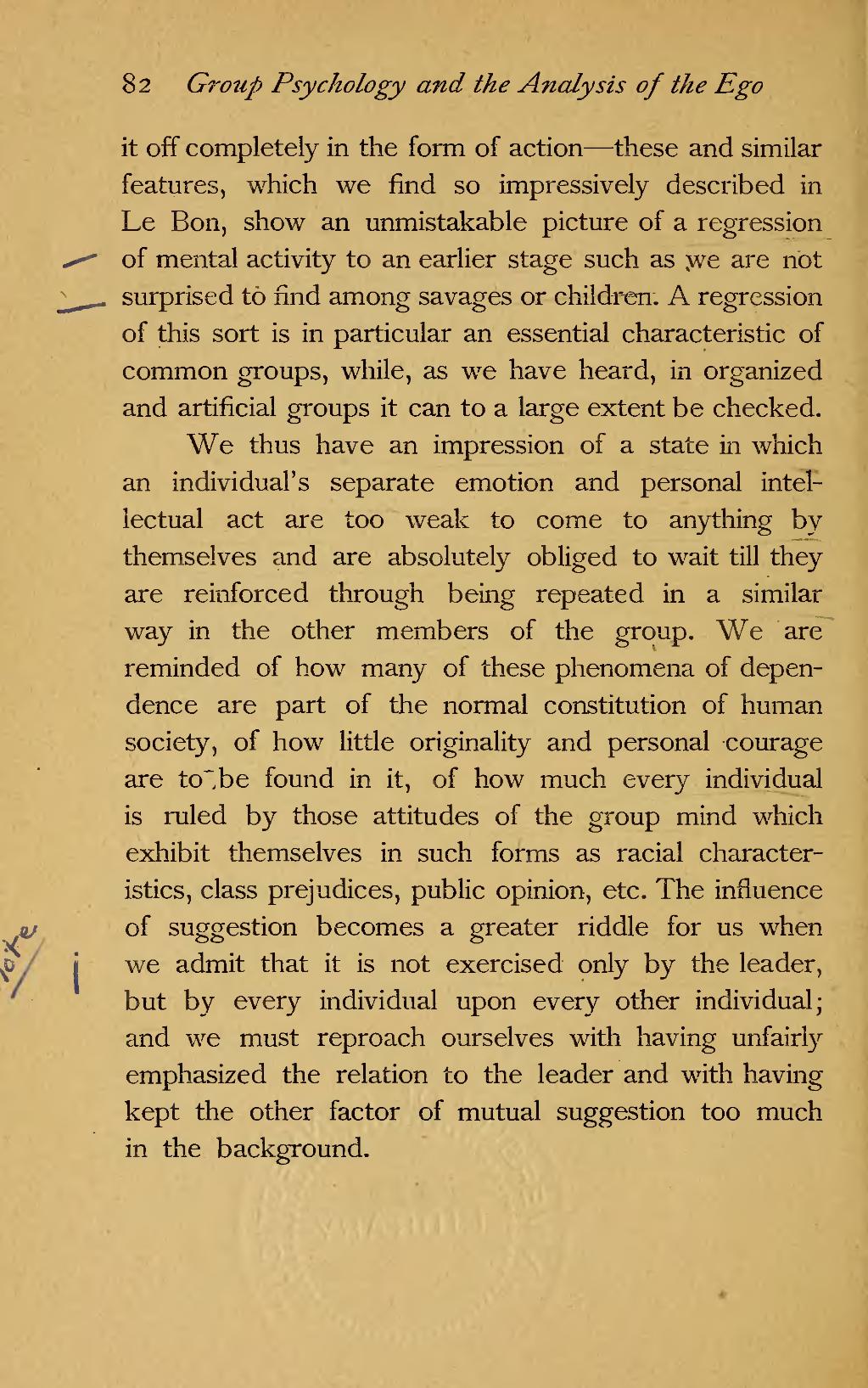it off completely in the form of action—these and similar features, which we find so impressively described in Le Bon, show an unmistakable picture of a regression of mental activity to an earlier stage such as we are not surprised to find among savages or children; A regression of this sort is in particular an essential characteristic of common groups, while, as we have heard, in organized and artificial groups it can to a large extent be checked.
We thus have an impression of a state in which an individual's separate emotion and personal intellectual act are too weak to come to anything by themselves and are absolutely obliged to wait till they are reinforced through being repeated in a similar way in the other members of the group. We are reminded of how many of these phenomena of dependence are part of the normal constitution of human society, of how little originality and personal courage are to~be found in it, of how much every individual is ruled by those attitudes of the group mind which exhibit themselves in such forms as racial characteristics, class prejudices, public opinion, etc. The influence of suggestion becomes a greater riddle for us when we admit that it is not exercised only by the leader, but by every individual upon every other individual; and we must reproach ourselves with having unfairly emphasized the relation to the leader and with having kept the other factor of mutual suggestion too much in the background.
